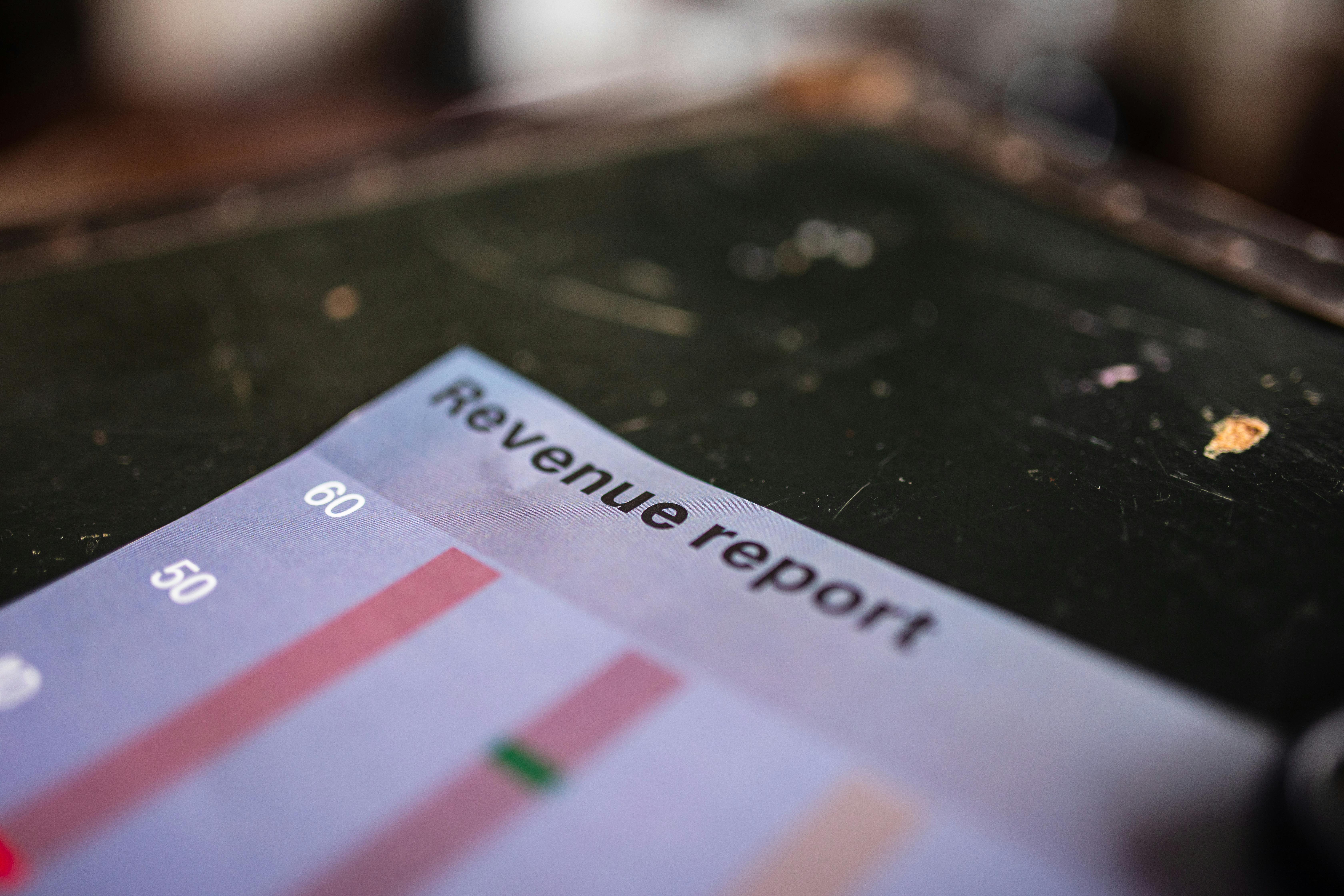In the ever-evolving world of SEO, one question looms larger than ever: Why is backlink relevancy more important than ever for SEO success? With search engines like Google continually refining their algorithms, the significance of relevant backlinks has surged to unprecedented levels. Gone are the days when simply accumulating a vast number of backlinks could guarantee a top ranking. Today, quality trumps quantity, and the relevancy of backlinks plays a crucial role in determining your site’s authority and visibility.
To understand this shift, we must explore how search engines evaluate content. They increasingly prioritize contextual relevance over sheer link volume. This means that a backlink from a highly relevant site can vastly improve your SEO rankings, while links from unrelated or low-quality sites may do more harm than good. The question is, are you ready to adapt your strategy to meet these new standards? Recent studies show that websites with highly relevant backlinks enjoy better engagement rates and lower bounce rates, leading to improved organic traffic.
As we delve deeper into why backlink relevancy is more vital than ever, we’ll uncover actionable strategies that can help you enhance your link-building efforts. Stay tuned to discover how focusing on niche-specific backlinks can propel your website to the top of search engine results. Are you prepared to transform your approach and harness the true power of relevant backlinks? In this article, we’ll provide you with the insights and tools necessary to leverage backlink relevancy for sustainable SEO success!
The Shifting SEO Landscape: Why Backlink Relevancy Should Be Your Top Priority in 2023

The digital marketing world is always changing, and in 2023, one of the most critical factors for SEO success is backlink relevancy. As search engines evolve, so does the way they evaluate links. In the past, having a high number of backlinks was enough to boost a site’s visibility. But now, the quality, and especially the relevancy of those backlinks, is what matters most. This shift means that businesses need to rethink their strategies to stay ahead in the competitive online landscape.
The Importance of Backlink Relevancy
Backlinks are links from one website to another, and they play a key role in how search engines determine a site’s authority and trustworthiness. But what does “relevancy” mean? Relevancy refers to how closely related a backlink is to your site’s content. For instance, a backlink from a tech blog is more valuable to a tech website than a link from a cooking site. Here are some reasons why backlink relevancy is more important than ever:
- Enhanced Authority: Relevant backlinks signal to search engines that your site is an authority in its niche. This can help improve your site’s ranking.
- Targeted Traffic: Links from relevant sites attract users who are genuinely interested in your content, leading to higher conversion rates.
- Algorithm Updates: Search engines like Google are constantly refining their algorithms to prioritize quality over quantity. This means that irrelevant backlinks can hurt your ranking.
- Building Relationships: Focusing on relevant backlinks often leads to stronger partnerships and networking opportunities within your industry.
Historical Context: The Evolution of SEO
Back in the early days of SEO, it was all about quantity. Websites would engage in link farms and pay for backlinks, which were often irrelevant. However, as search engines became more sophisticated, they started to penalize these practices. For example, Google’s Penguin update in 2012 targeted sites with manipulative link-building practices. This was a game changer and set the groundwork for the importance of relevancy.
Fast forward to today, and the landscape has shifted even more. Search engines now utilize advanced algorithms that evaluate not just the number of backlinks, but also their context. Here’s a quick timeline of how backlink strategies have evolved:
- 2000s: Quantity over quality; link farms thrive.
- 2012: Google’s Penguin update penalizes spammy backlinks.
- 2015: Mobile-first indexing starts; relevancy takes center stage.
- 2020 and beyond: AI and machine learning influence how links are assessed.
Practical Strategies for Achieving Backlink Relevancy
As businesses and marketers adjust to this shifting landscape, here are some practical strategies for securing relevant backlinks:
- Identify Your Niche: Understand your target audience and the industries that align with your content.
- Content Collaboration: Partner with relevant bloggers and websites for guest posts or features that naturally include backlinks to your site.
- Quality over Quantity: Instead of chasing numerous links, focus on a smaller number of high-quality, relevant links.
- Create Shareable Content: Infographics, case studies, and original research can attract attention from other relevant sites looking to link back to quality information.
- Engage on Social Media: Share your content on platforms where your target audience hangs out. This can lead to more organic backlinks.
Examples of Effective Backlink Strategies
Consider a local New York restaurant aiming to improve its online visibility. Instead of trying to get links from any food blog, they could:
- Collaborate with local influencers who review restaurants in NYC.
- Write articles about local food trends and pitch them to local news sites.
- Participate in community events and earn backlinks from local government websites.
Conclusion
In the ever-evolving world of SEO, backlink relevancy is now at the forefront. As search engines continue to refine their algorithms, businesses must adapt their strategies accordingly. Focusing on building quality, relevant backlinks is essential for improving online visibility and driving targeted traffic. By embracing these changes and prioritizing the relevancy of backlinks, marketers can position themselves for success in the digital landscape of 2023 and beyond.
5 Compelling Reasons Backlink Relevancy Can Make or Break Your SEO Strategy

In the ever-evolving world of digital marketing, the importance of backlinks in SEO can not be overstated. However, not all backlinks are created equal. Backlink relevancy is something that determines not just how many links you have, but also how effective they are for your SEO strategy. In a landscape where algorithm updates can change the game overnight, understanding why backlink relevancy is more important than ever for SEO success is crucial. Here are five compelling reasons why it can make or break your SEO strategy.
1. Search Engines Value Quality Over Quantity
In the earlier days of SEO, it was all about accumulating links. However, search engines like Google have evolved and now prioritize the quality of backlinks over sheer volume. If you have a thousand backlinks from low-quality, unrelated sites, it could hurt your rankings rather than help them. On the flip side, a few high-quality, relevant backlinks can significantly boost your authority. For example, if you run a health blog, a backlink from a reputable medical site will carry much more weight than a backlink from an unrelated gaming site.
2. Relevance Signals Expertise
When a website links to your content, it’s essentially vouching for its quality and relevance. Therefore, if your backlinks come from sites within the same industry or niche, it signals to search engines that you are an authority in that area. This relevancy helps in building trust not only with search engines but also with your audience. A brand known for its expertise is more likely to attract organic traffic, leads, and ultimately, conversions.
3. Improves User Experience
Backlink relevancy is also tied to user experience. If someone clicks on a link expecting to find information about a specific topic, and they land on a page that’s unrelated or irrelevant, it creates a poor experience. This can lead to higher bounce rates, which search engines interpret as a sign that your content isn’t valuable. On the other hand, relevant backlinks from related sites can guide users to more quality content, keeping them engaged and less likely to leave your site immediately.
4. The Role of Anchor Text
Anchor text is another important factor in backlink relevancy. The text that forms the clickable part of a hyperlink plays a significant role in informing search engines about the context of the linked content. Using relevant keywords in your anchor text can help improve your SEO efforts. However, it’s crucial to avoid keyword stuffing. Instead, focus on natural language that accurately describes the linked content. For instance, if you have a blog post about digital marketing tips, a relevant anchor could be “effective marketing strategies.” This tells both users and search engines what to expect.
5. Long-Term SEO Strategy
Backlink relevancy is a cornerstone of a sustainable SEO strategy. Search engines are constantly updating their algorithms to provide users with the best possible content. Therefore, a strategy that relies on irrelevant backlinks is not only short-sighted but also risky. Instead, focusing on building a strong portfolio of relevant backlinks can ensure long-term success. This means investing time in outreach, creating quality content that others want to link to, and forming relationships within your niche.
Practical Steps to Improve Backlink Relevancy
Evaluate Your Current Backlinks: Use tools like Moz or Ahrefs to analyze your backlink profile and identify any irrelevant links.
Create High-Quality Content: Focus on producing valuable content that naturally attracts relevant backlinks. This could be in the form of blog posts, infographics, or research papers.
Engage with Influencers: Build relationships with influencers in your niche. When they share your content, it could lead to relevant backlinks from their audience.
Guest Blogging: Write guest posts for reputable sites in your industry. This is a great way to earn high-quality backlinks that are also relevant.
Monitor Competitors: Keep an eye on where your competitors are getting their backlinks from. This can give you insights into potential opportunities for your own site.
In the competitive landscape of digital marketing, understanding backlink relevancy is more crucial than ever. As search engines continue to refine their algorithms, focusing on quality, relevance, and user experience will set you apart. By strategically building a robust network of relevant backlinks, you can enhance your authority, improve user engagement, and ultimately drive your SEO success. Adapting to these changes not just helps you today; it prepares your site for the future.
How to Evaluate Backlink Quality: Key Metrics for Sustainable SEO Success

In the ever-evolving world of SEO, understanding how to evaluate backlink quality is crucial for any digital marketing strategy. Backlinks, which are links from other websites to yours, have been a fundamental part of SEO since the early days of the internet. However, not all backlinks are created equal. In fact, it is the quality of backlinks that can make or break your online visibility. In this article, we will explore key metrics for assessing backlink quality, and emphasize why backlink relevancy is more important than ever for achieving sustainable SEO success.
Why Backlink Quality Matters
When search engines like Google assess your website, one of the main factors they consider is the quality of your backlinks. Low-quality backlinks can harm your site’s reputation and ranking. Links from spammy sites or unrelated industries won’t help your SEO efforts in the long run. Instead, focusing on high-quality, relevant backlinks can improve your authority and visibility on search engines.
Here are some key metrics to evaluate backlink quality:
Domain Authority (DA): This metric, developed by Moz, predicts how well a website will rank on search engine result pages. The higher the DA, the more authoritative the site is considered.
Page Authority (PA): Similar to DA, this score predicts the ranking potential of a specific page rather than the overall domain.
Relevancy: Links from websites that are relevant to your niche hold more value. For example, if you run a travel blog, a backlink from a travel agency or tourism board is far more beneficial than one from a tech blog.
Trust Flow (TF): Developed by Majestic, this metric measures the trustworthiness of a site based on the quality of its backlinks. A higher TF indicates a more trustworthy site.
Citation Flow (CF): Also from Majestic, this metric assesses the quantity of backlinks. While a high CF is good, it should be balanced with a high TF for optimal results.
Why Backlink Relevancy Is More Important Than Ever
In today’s SEO landscape, relevancy plays a critical role in determining the effectiveness of your backlinks. Google’s algorithms have become sophisticated enough to distinguish between high-quality, relevant links and those that are not. This means that even if you have a high number of backlinks, if they are not relevant to your content, they won’t contribute much to your SEO efforts.
Backlink relevancy also impacts user experience. When users click on a link they expect the content to be related to what they were seeking. If they land on an unrelated page, they are likely to bounce back to the search results, which signals to Google that your page might not be as valuable as others.
Metrics to Assess Backlink Relevancy
When evaluating backlinks, consider these aspects to gauge their relevancy:
Contextual Relevance: Is the backlink placed within relevant content? Links embedded in content that relates to the topic of your site usually carry more weight.
Topical Authority: Does the linking site hold authority in the same niche? A link from a recognized leader in your industry is more valuable than a link from a less relevant source.
Anchor Text: The text that is hyperlinked can provide context to both users and search engines. Descriptive anchor text that reflects the linked content improves relevancy.
Domain Relevance: A link from a site that shares a common audience or similar topics can positively influence your SEO.
Practical Steps to Improve Backlink Quality and Relevancy
Conduct a Backlink Audit: Use tools like Ahrefs or SEMrush to analyze your existing backlinks. Identify and disavow any toxic links that could be harming your domain authority.
Build Relationships: Networking with other bloggers and businesses in your niche can open doors for high-quality backlink opportunities. Guest posting on relevant sites is an effective way to gain valuable links.
Create High-Quality Content: By producing valuable, shareable content, you increase your chances of earning backlinks naturally. Infographics, in-depth guides, and case studies generally attract more links.
Monitor Competitors: Keep an eye on the backlink profiles of your competitors. Tools like Majestic and Moz can help you see where they are getting their links from and if those opportunities are relevant for you too.
Utilize Social Media: Promote your content on social media platforms. The more visibility your content gets, the higher the chances that others will link to it.
In the competitive realm of digital marketing in New York, understanding how to evaluate backlink quality and the importance of relevancy can set you apart from the competition. It’s not just about quantity anymore; building a network of high-quality, relevant backlinks is vital for sustainable SEO success. By focusing on these elements, you can enhance your site’s authority and improve your chances of ranking higher on search engine results
The Secret Sauce to Higher Rankings: Why Contextual Backlinks Are Essential

In the ever-evolving world of digital marketing, achieving higher rankings on search engines is a constant battle. One of the key strategies that have emerged is the use of contextual backlinks. But what exactly are these? And why does their relevance matter more than ever for SEO success? Let’s dive into the details to uncover the secret sauce behind higher rankings.
The Power of Contextual Backlinks
Contextual backlinks are those links that are embedded in the content of a webpage. Instead of simply being placed in a sidebar or footer, these links are integrated into the body of the text, giving them more significance. When a backlink is relevant to the content it’s linked from, it signals to search engines that the linked resource is valuable and authoritative. This enhances the credibility of both the source and the destination pages.
For example, if a blog post about digital marketing strategies includes a link to a reputable source discussing SEO techniques, this contextual link is likely to carry more weight than a link found in a less relevant section of the website. Search engines, especially Google, use complex algorithms to assess the relevance and authority of a page, and contextual backlinks play a pivotal role in this assessment.
Why Relevancy Matters Most
Backlink relevancy is not just a nice-to-have; it’s a crucial factor in today’s SEO landscape. Here’s why:
Search Engine Algorithms: Recent updates to search engine algorithms have placed greater emphasis on the relevance of backlinks. Google’s algorithm prioritizes links from sites that are contextually similar to the content they are linking to.
Trust and Authority: When your site gets backlinks from relevant, high-quality domains, it builds your site’s authority. A site that is deemed authoritative by search engines will rank higher in search results.
User Experience: Relevancy enhances user experience. When users click on a backlink, they expect to find closely related content. If they do, it increases the chances of them spending more time on your site, reducing bounce rates and signaling to search engines that your content is valuable.
Niche Targeting: In the digital marketing realm, targeting a specific niche is vital. Contextual backlinks from sites within your niche can drive highly targeted traffic. This not only improves SEO but can also lead to higher conversion rates.
How to Build Contextual Backlinks
Building high-quality contextual backlinks takes time and effort, but the results can be incredibly rewarding. Here are some strategies to consider:
Guest Blogging: Write articles for reputable blogs in your industry. Make sure to include a contextual backlink to your site within the content.
Content Marketing: Create high-quality, valuable content that others will want to link to. Infographics, comprehensive guides, and research studies are all excellent options.
Engage with Your Community: Participate in online forums, social media groups, or other platforms relevant to your niche. Share insights and link to your content when appropriate.
Influencer Outreach: Collaborate with influencers who can share your content with their audience, potentially leading to contextual backlinks.
Broken Link Building: Identify broken links on relevant websites and suggest replacing them with your own content as a solution.
Common Misconceptions About Backlinks
Many misconceptions surround backlinks, especially contextual ones. Here are a few to clarify:
All Backlinks Are Equal: This is far from the truth. Not all backlinks have the same weight. Contextual backlinks from authoritative sites are much more beneficial than a large number of irrelevant links.
Quantity Over Quality: It’s tempting to focus on acquiring as many backlinks as possible. However, quality should always trump quantity. A few high-quality links can be more effective than hundreds of low-quality ones.
Once Done, Forget It: SEO is not a set-it-and-forget-it type of game. Regularly audit your backlinks, remove toxic links, and continuously seek new contextual link opportunities.
The Future of Backlinking
As search engines continue to refine their algorithms, the importance of backlink relevancy will only grow. Keeping up with industry trends and adapting your strategies is vital.
- Monitor algorithm updates: Staying informed about changes can help you adjust your strategies accordingly.
- Invest in quality content: This will not only attract backlinks but also engage your audience effectively.
- Analyze competitors: Understanding your competition can reveal new backlink opportunities and strategies.
In conclusion, contextual backlinks are a powerful tool in the quest for higher search rankings. Their relevancy is more crucial than ever in the SEO landscape. By focusing on building high-quality, relevant backlinks, businesses can enhance their online visibility and authority, driving more traffic and ultimately achieving greater success in the digital realm. Embrace the strategies discussed, and watch your rankings soar!
Unlocking the Power of Relevant Backlinks: Strategies for Dominating Search Results in Your Niche

In the ever-evolving world of SEO, businesses are always searching for ways to improve their visibility in search engine results. One of the most powerful tools in a digital marketer’s toolkit is backlinks. But not just any backlinks will do. The relevancy of these links is crucial to your success in dominating search results, especially in competitive niches. So, let’s explore why backlink relevancy is more important than ever for SEO success and how you can unlock its power.
What Are Backlinks and Why Do They Matter?
Backlinks, also known as inbound links, are links from one website to another. They act like votes of confidence from other sites, signaling to search engines that your content is trustworthy and valuable. When a reputable site links to your content, it can significantly boost your search engine rankings. However, not all backlinks are created equal.
- Quality vs. Quantity: It’s not just about how many backlinks you have, but the quality and relevancy of those links. A few high-quality, relevant backlinks can be more beneficial than hundreds of irrelevant ones.
- Trustworthiness and Authority: Links from authoritative sites carry more weight. If a trusted source in your niche links to you, it can enhance your credibility in the eyes of search engines.
The Importance of Relevancy
Backlink relevancy refers to how closely related the linking site is to your content. In today’s SEO landscape, search engines are getting smarter about understanding context. They look for connections between the content and the site linking to it. Here are some key reasons why relevancy matters more than ever:
- Algorithm Updates: Search engines like Google are continuously updating their algorithms to prioritize quality and relevancy. The Penguin update, for example, introduced a focus on the quality of backlinks rather than just quantity.
- User Experience: Users are more likely to engage with content that is relevant to their interests. If a site is linking to yours because of relevant content, it increases the chances of attracting the right audience.
Strategies to Acquire Relevant Backlinks
Now that we understand the significance of relevant backlinks, let’s discuss some effective strategies to acquire them. It’s not just about getting links; it’s about getting the right ones.
Create High-Quality Content: The foundation of a successful backlink strategy is valuable content. When you produce informative, engaging, and unique content, other websites will want to link to it naturally. Consider creating:
- In-depth guides
- Infographics
- Original research or case studies
Guest Blogging: Identify websites in your niche that accept guest posts. Write valuable articles that include a link back to your site. Make sure the blog is relevant to your industry for maximum impact.
Build Relationships: Networking with other professionals in your field can lead to backlink opportunities. Engage with them on social media, comment on their blogs, or collaborate on projects. Building genuine relationships can result in organic backlinks.
Use Resource Pages: Many websites maintain resource pages that list useful links. Reach out to these sites and suggest your content as a valuable resource. Make sure it’s relevant to their audience.
Leverage Social Media: Share your content on social media platforms to increase visibility. The more eyes on your content, the higher the chance of gaining relevant backlinks.
Monitor Your Competitors: Use tools like Ahrefs or Moz to analyze your competitors’ backlink profiles. Identify where they are getting their links and see if you can replicate their success.
Evaluating Backlink Relevancy
It’s essential to assess the relevancy of your backlinks regularly. Here’s how you can do it:
- Check Domain Authority: Use tools to check the authority of the linking site. Higher authority usually means more trustworthiness.
- Analyze Content Relevance: Ensure that the linking site’s content is related to your niche. A link from a site about gardening won’t help much if you’re in the tech industry.
- Evaluate Traffic Sources: Look at the referral traffic from your backlinks. If users are bouncing quickly, it may indicate irrelevancy.
Tools for Backlink Analysis
Utilizing the right tools can make your backlink strategy more effective. Here are some popular options:
- Ahrefs: Great for analyzing backlink profiles and competitor research.
- Moz: Offers a suite of SEO tools, including backlink analysis.
- SEMrush: A comprehensive tool that includes backlink tracking.
In the digital marketing landscape of New York and beyond, understanding the importance of relevant backlinks can set you apart from your competition. The right strategy not only helps improve your search engine rankings but also enhances your brand’s authority and trustworthiness. By focusing on creating quality content and nurturing relationships, you can unlock the true power of backlinks and drive sustainable traffic to your website. Embrace these strategies, and watch your online presence flourish.
Conclusion
In conclusion, the significance of backlink relevancy in today’s SEO landscape cannot be overstated. As search engines continue to evolve, the focus has shifted from sheer quantity to the quality and relevance of backlinks. High-quality, relevant backlinks not only enhance your website’s authority but also improve your chances of attracting a targeted audience that is more likely to convert. We explored how search engines assess the context of links and the importance of aligning your backlinks with your niche for optimal results. Moreover, with the increasing emphasis on user experience and engagement metrics, building a network of relevant backlinks is essential for maintaining competitive advantage. As you strategize your link-building efforts, prioritize relevance to ensure sustainable growth. Start today by auditing your current backlink profile and seeking out high-quality, relevant opportunities to elevate your SEO game. Remember, in the world of backlinks, quality truly triumphs over quantity.








